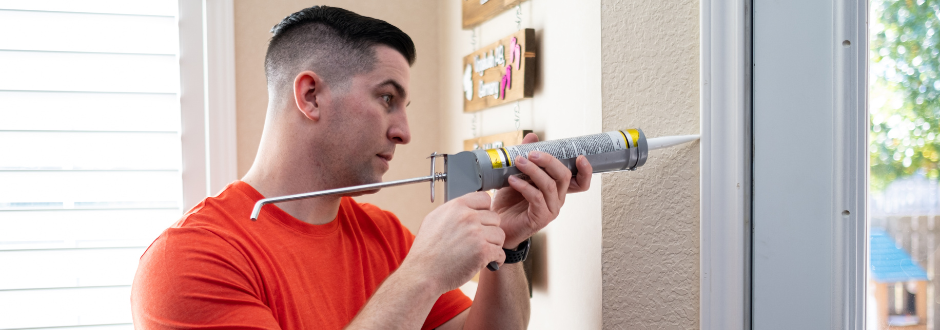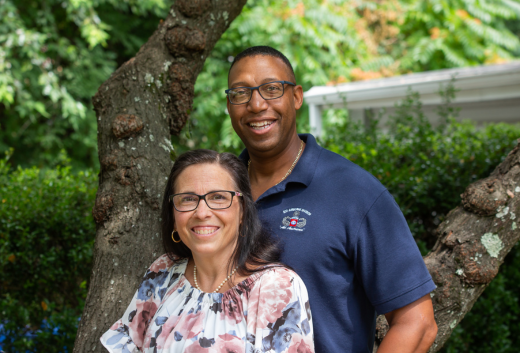There is no perfect house. That’s a professional opinion put forth by David Morris, a licensed general contractor, home inspector and the CEO at A-1 House Inspectors, Inc. in Fuquay-Varina, North Carolina.
The company was started almost 40 years ago by Morris' grandfather, who is credited with helping to create the North Carolina Home Inspection state licensure board, standards of practice, and exam. Morris worked with his grandfather while still in school, and then again after spending time at IBM as a Network Engineer. He returned to performing inspections in 2002 and estimates the company has conducted more than 30,000 residential and commercial inspections since.
We asked Morris to explain why buyers should get a home inspection and when, and what problems a home inspection might reveal. Of course, these inspections are “slice in time” evaluations, meaning the inspector looks for signs of past damage and will suggest systems or situations that can pose a problem in a year or two (if they aren’t apparent now).
The home inspector will then issue the homebuyer a written report with pictures and video of anything they notice that requires a closer look. It’s important that you read this report or view any video/picture carefully. There could be “deal breakers” that, if ignored, could cost you down-the-road.
Related: Tips for Buying a Home “Sight Unseen”
AMS: Should a buyer always have a home inspection and when should that happen?
Morris: You should schedule the inspection once you’ve signed a sales contract, noting that it should take place within 7 or 10 days, so you can decide early in the process if you don't want to buy the home based on the report you receive back. A home inspector will look for structural defects, problems with systems such as electrical, plumbing, and HVAC, and how all the systems work together.
AMS: What are the “show stoppers?”
Morris: Major issues include water or termite damage, aging systems, and the condition of the roof and siding. These are problems that could cause further damage if allowed to continue.
Related: 5 Home Problems You Need to (and SHOULD) Walk Away From
AMS: What about new construction? Is it safe to skip inspecting a brand new home?
Morris: Builders and the subcontractors can and do make mistakes. You should have a newly built home inspected several times. The first time should occur during the framing stage before the insulation goes in since it can conceal problems. For the second inspection, schedule it at the same time as the final walkthrough, when the house is finished but before the builder gets your money — that’s when they’re more inclined to fix problems. Finally, many builders offer a one-year warranty. Before that expires, schedule a third inspection since conditions can change after you’ve lived in the home for a year.
I had a gentleman who skipped the final inspection and three months later there was a leak in the wall. His family had to vacate the house for a month while the walls were torn down and replaced. An inspector likely would have found that problem by running water and analyzing those walls with a thermal camera.
AMS: Do buyers typically tag along on the home inspection?
Morris: It is common for buyers to attend the walk-through towards the end of the inspection to talk everything over. That allows the inspector time to maintain 100% of their focus on the house, and then show the buyer anything we’re concerned about. Limiting potential distractions is important as it lessens the chance of missing an issue.
For example, today, I inspected a 20-year-old house with siding issues. There was also a roof leak at one time, but the roof had been replaced. However, the home had suspicious stains near the baseboards and on a ceiling as a result of the siding and roof defects. When we see something like that, we use a thermal camera and moisture meter to better understand the situation. In this case, it was dry behind the wall, but we recommended the buyer get a further evaluation to determine what had occurred and what the owners had done to correct the problem: Did they just fix a leak or did they look inside the wall cavity for mold and mitigate that?
AMS: How many problems does a “typical” house have?
Morris: We uncover everything we possibly can, which typically ranges between 25 to 50 problems per house. But when it comes to the more important issues — such as water damage or worn-out roofs — those are the ones we're really concerned with because of the potential repair expenses involved. Even if it’s a brand-new house, I've never seen a perfect one… it’s like trying to find a unicorn. I’d love to hand somebody a blank piece of paper someday and say, “Here’s your report, I didn’t find anything,” but that will never happen.
AMS: So it’s sounding like an inspection should always be done, regardless of the home’s age?
Morris: Yes, we see common problems day in and day out and we know what to look for. Homes are expensive so it’s important buyers know what they’re getting and what may need to be fixed before they move in. And if it’s a really big issue, they may need to back out of the deal and find another home.
Related: What is a VA Appraisal (And Who Pays for It?)
We’re Here to Help
Whether you’re thinking about buying, ready to start home-shopping in earnest, or considering a refinance, an AMS Military Mortgage Advisor will be happy to provide you with an honest and fair comparison of your mortgage options, including a wide range of affordable mortgages designed to meet your needs.
Ensuring AAFMAA Members obtain the best mortgage possible is our mission. Get your free mortgage assessment today or give us a call at 844-422-3622!





.webp)